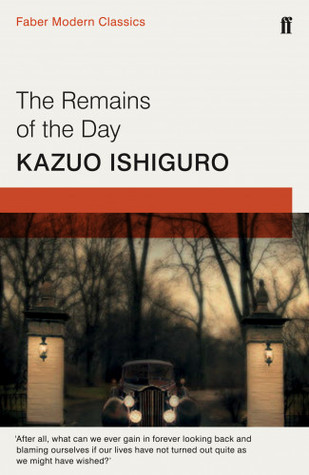starchy reviewed Remains of the Day by Kazuo Ishiguro
Remains of the Day
5 stars
There's so much in here. It bears another read, and I'm very curious how they managed the film adaptation.

Paperback, 258 pages
English language
Published April 1, 2015 by Faber & Faber, Limited.
The Remains of the Day won the 1989 Booker Prize and cemented Kazuo Ishiguro's place as one of the world's greatest writers. David Lodge, chairman of the judges in 1989, said, it's 'a cunningly structured and beautifully paced performance'. This is a haunting evocation of lost causes and lost love, and an elegy for England at a time of acute change. Ishiguro's work has been translated into more than forty languages and has sold millions of copies worldwide.
Stevens, the long-serving butler of Darlington Hall, embarks on a leisurely holiday that will take him deep into the countryside, but also into his own past. Reflecting on his years of service, he must re-examine his life in the face of changing Britain, and question whether his dignity and properness have come at a greater cost to himself.
There's so much in here. It bears another read, and I'm very curious how they managed the film adaptation.
Content warning spoilers for the ending
This book is not a love story but a character study. It's a meditation on professional dignity, and what happens when you sacrifice everything - every opportunity, every chance for connection, for human emotion - on the altar of that dignity. It's a book about misleading yourself. It's a book about giving in to sunk costs.
The last few pages are what made this story work for me. Because Stevens is a sympathetic, if deeply frustrating, narrator. I was rooting for him to have some kind of growth, to leave him ready to grasp the remains of the day. And it seemed like Ishiguro was leading him there, showing him reconsidering the value of bantering (and thus, human connection). But the very last thing Stevens thinks is how this will make him a better butler. Because in the end, he is too scared to be anything but what he has always been.
Superbly done by Ishiguro.
I didn't start getting into the story until around the 40% mark and even then, I felt like I had to make myself read it. If it hadn't been a book club pick, it'd probably be a DNF. I'm glad I stuck with it until the end. It was worth it from a literary and historical standpoint. But that ending felt incredibly depressing to me and I'm not sure it was meant to be? Was there meant to be little to no growth of the main character? Did he grow, but my own views are just so vastly different I can't see it? I have a lot of feelings to think about before my book club's discussion.